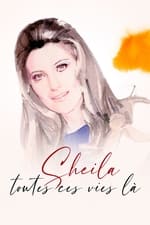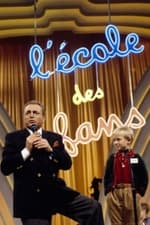Personal Info
Known For Acting
Known Credits 10
Gender Male
Birthday May 11, 1947 (77 years old)
Place of Birth Toulouse, Haute-Garonne, France
Also Known As
- Ringo Willy Cat
- Guy Bayle
Content Score
100
Yes! Looking good!
Login to report an issue
Biography
Ringo (born Guy Bayle 11 May 1947), in Toulouse, Occitanie, France, also known as Ringo Willy Cat is a French pop–singer, who became famous in the seventies. According to Billboard magazine he "enjoyed a huge amount of sales" with various hits. Ringo was cited by Billboard as an example of a French artist having a big impact in exporting French songs to the international arena and creating international hits despite the existing language barrier which the French artists face abroad. He was married to Sheila, a female French singer. Ringo's career ended in the mid–'80s.
Ringo, during his high-school years in Toulouse, enjoyed reading Albert Camus as well as literary works by other authors. He also wrote and performed songs and played the guitar. As a composer he was influenced by the American music of the era. In the late '60s he met musician Pierre Groscolas and the two formed the group Chœurs. After some initial success in Toulouse, the group decided to go to Paris.
Ringo was discovered in Paris by Mario Padovan, a photographer and publisher of teen-girl magazines Nous Deux and Télé Poche who suggested to the young artist that he appear in one of his magazines. It was during a photo shoot at Padovan's magazines that Ringo met his future wife, Sheila. Meeting her led to his being introduced to Claude Carrère, who became the manager of his musical career.
Carrère, a pioneer, who at the time, was France's most successful independent producer, launched Ringo's career in 1971. His first big hit under Carrère's management was Elle, je ne veux qu’elle. Carrère wanted to capture the teenage market before they were attracted by established stars. Carrère augmented his distribution network by entering into a deal with Sonopresse in 1972. Under the deal, he released his first two discs under the Sonopresse label, one of which was Trop Belle Pour Rester Seule by Ringo. At the time, he also sang Help, Get Me Some Help in French, selling over one million records in France. He also sang a rendition of the international hit, "Mamy Blue", by Los Pop Tops.
Both Ringo and Sheila were managed by Carrère. In a 1974 interview to Billboard, Carrère mentioned that the wedding of Sheila and Ringo was attended by 15,000 people at the city hall and "resembled a royal wedding". In the 1970s, Ringo sold 30 million records with hits such as Elle, je ne veux qu'elle, Ma jalousie, Les Oiseaux de Thaïlande, Rosanna fille sauvage and Goodbye Elvis. In 1973, his single Ma jalousie was featured in Billboard's Hits of the World in Belgium's and Switzerland's top 10 at No. 7, while his LP Ringo was at No. 8 in Belgium. With his then-wife Sheila, he also recorded a duet, Les gondoles à Venise, which became a big hit. In 1980, he discontinued his association with Carrère and produced Allô à l'OVNI, followed by L'ange exterminateur (L'Antéchrist) in 1982. These were followed in 1983 by J'ai toujours besoin d'amour, with Une star s'endort ainsi on the flip–side, his last records.
To this date, there has been no compilation of his hits in CD format. ...
Source: Article "Ringo (singer)" from Wikipedia in English, licensed under CC-BY-SA 3.0.
Ringo (born Guy Bayle 11 May 1947), in Toulouse, Occitanie, France, also known as Ringo Willy Cat is a French pop–singer, who became famous in the seventies. According to Billboard magazine he "enjoyed a huge amount of sales" with various hits. Ringo was cited by Billboard as an example of a French artist having a big impact in exporting French songs to the international arena and creating international hits despite the existing language barrier which the French artists face abroad. He was married to Sheila, a female French singer. Ringo's career ended in the mid–'80s.
Ringo, during his high-school years in Toulouse, enjoyed reading Albert Camus as well as literary works by other authors. He also wrote and performed songs and played the guitar. As a composer he was influenced by the American music of the era. In the late '60s he met musician Pierre Groscolas and the two formed the group Chœurs. After some initial success in Toulouse, the group decided to go to Paris.
Ringo was discovered in Paris by Mario Padovan, a photographer and publisher of teen-girl magazines Nous Deux and Télé Poche who suggested to the young artist that he appear in one of his magazines. It was during a photo shoot at Padovan's magazines that Ringo met his future wife, Sheila. Meeting her led to his being introduced to Claude Carrère, who became the manager of his musical career.
Carrère, a pioneer, who at the time, was France's most successful independent producer, launched Ringo's career in 1971. His first big hit under Carrère's management was Elle, je ne veux qu’elle. Carrère wanted to capture the teenage market before they were attracted by established stars. Carrère augmented his distribution network by entering into a deal with Sonopresse in 1972. Under the deal, he released his first two discs under the Sonopresse label, one of which was Trop Belle Pour Rester Seule by Ringo. At the time, he also sang Help, Get Me Some Help in French, selling over one million records in France. He also sang a rendition of the international hit, "Mamy Blue", by Los Pop Tops.
Both Ringo and Sheila were managed by Carrère. In a 1974 interview to Billboard, Carrère mentioned that the wedding of Sheila and Ringo was attended by 15,000 people at the city hall and "resembled a royal wedding". In the 1970s, Ringo sold 30 million records with hits such as Elle, je ne veux qu'elle, Ma jalousie, Les Oiseaux de Thaïlande, Rosanna fille sauvage and Goodbye Elvis. In 1973, his single Ma jalousie was featured in Billboard's Hits of the World in Belgium's and Switzerland's top 10 at No. 7, while his LP Ringo was at No. 8 in Belgium. With his then-wife Sheila, he also recorded a duet, Les gondoles à Venise, which became a big hit. In 1980, he discontinued his association with Carrère and produced Allô à l'OVNI, followed by L'ange exterminateur (L'Antéchrist) in 1982. These were followed in 1983 by J'ai toujours besoin d'amour, with Une star s'endort ainsi on the flip–side, his last records.
To this date, there has been no compilation of his hits in CD format. ...
Source: Article "Ringo (singer)" from Wikipedia in English, licensed under CC-BY-SA 3.0.
Acting
|
||||||||||||
|
||||||||||||
|
||||||||||||
|
||||||||||||
|
||||||||||||
|





